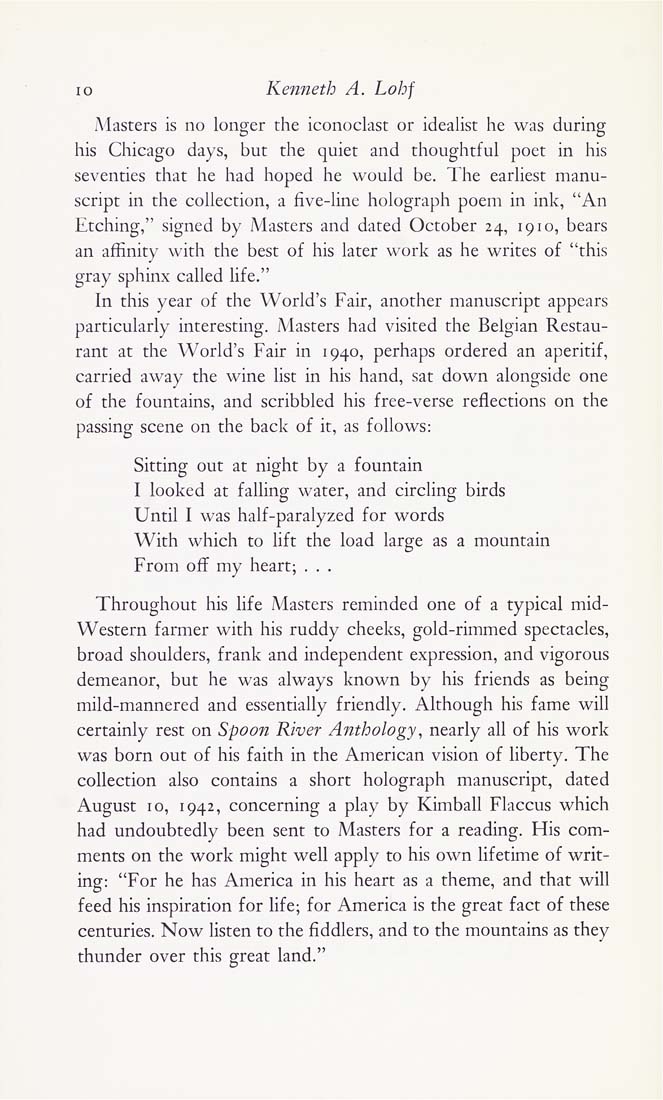Columbia Library columns (v.14(1964Nov-1965May))
(New York : Friends of the Columbia Libraries. )
|
||
|
|
|
|
| v.14,no.2(1965:Feb): Page 10 |

lo Kenneth A. Lohf Masters is no longer the iconoclast or idealist he was during his Chicago days, but the quiet and thoughtful poet in his seventies that he had hoped he would be. 1 he earliest manu¬ script in the collection, a five-line holograph poem in ink, "An Etching," signed by Masters and dated October 24, 1910, bears an afliinity with the best of his later work as he writes of "this gray sphinx called life." In this year of the World's Fair, another manuscript appears particularly interesting. Masters had visited the Belgian Restau¬ rant at the World's Fair in 1940, perhaps ordered an aperitif, carried away the wine list in his hand, sat down alongside one of the fountains, and scribbled his free-verse reflections on the passing scene on the back of it, as follows: Sitting out at night by a fountain I looked at falling water, and circling birds Until I was half-paralyzed for words With which to lift the load large as a mountain From off my heart; . . . Throughout his life Masters reminded one of a typical mid- Western farmer with his ruddy cheeks, gold-rimmed spectacles, broad shoulders, frank and independent expression, and vigorous demeanor, but he was always known by his friends as being mild-mannered and essentially friendly. Although his fame will certainly rest on Spoon River Anthology, nearly all of his work was born out of his faith in the American vision of liberty. The collection also contains a short holograph manuscript, dated August 10, 1942, concerning a play by Kimball Flaccus which had undoubtedly been sent to Masters for a reading. His com¬ ments on the work might well apply to his own lifetime of writ¬ ing: "For he has America in his heart as a theme, and that will feed his inspiration for Hfe; for America is the great fact of these centuries. Now listen to the fiddlers, and to the mountains as they thunder over this great land." |
| v.14,no.2(1965:Feb): Page 10 |







